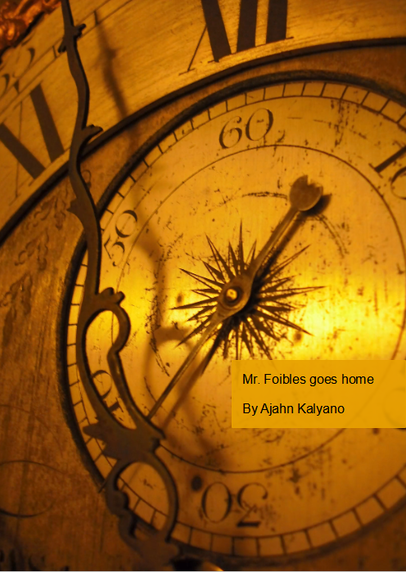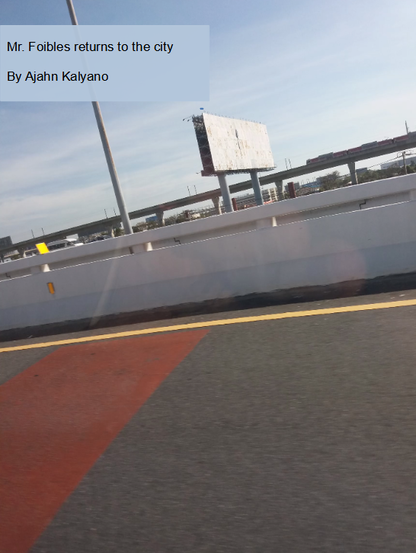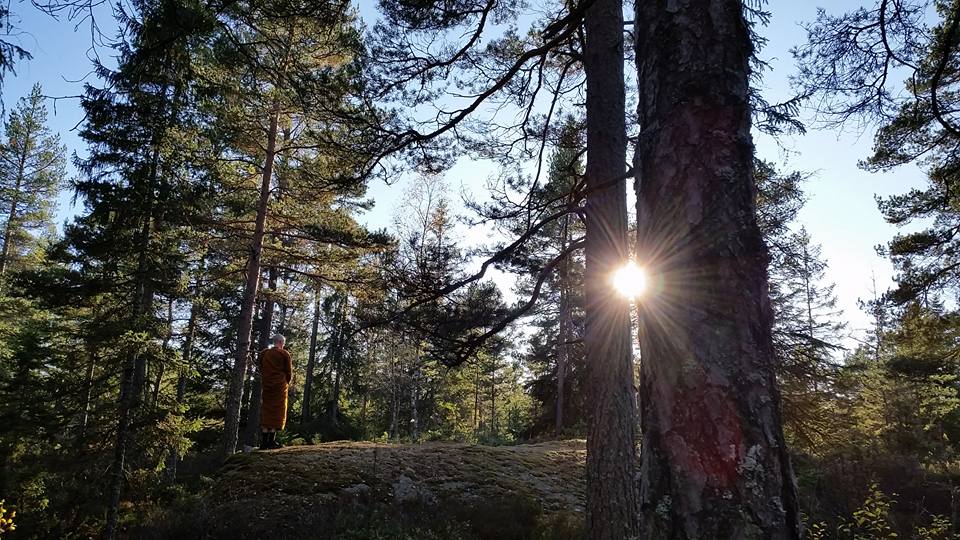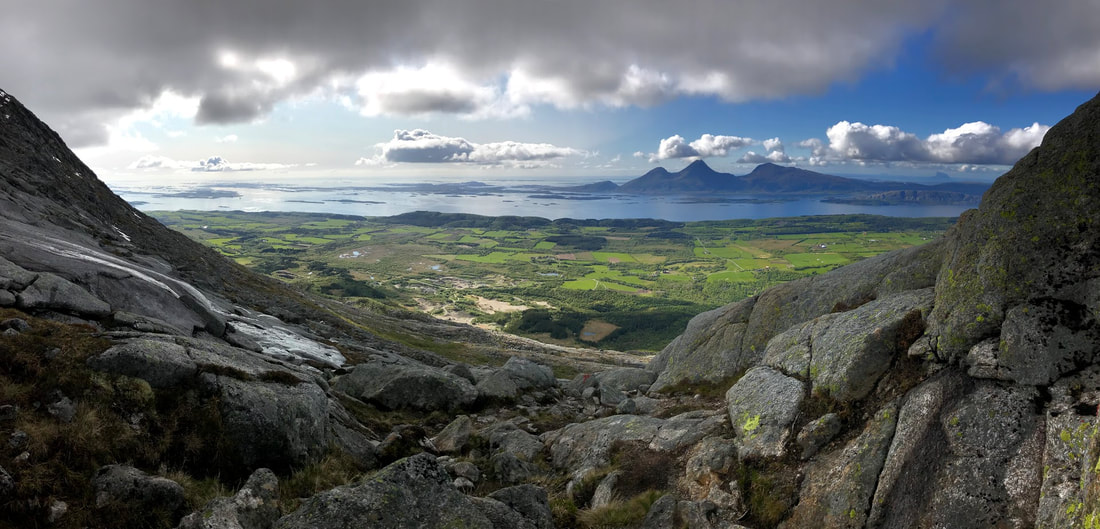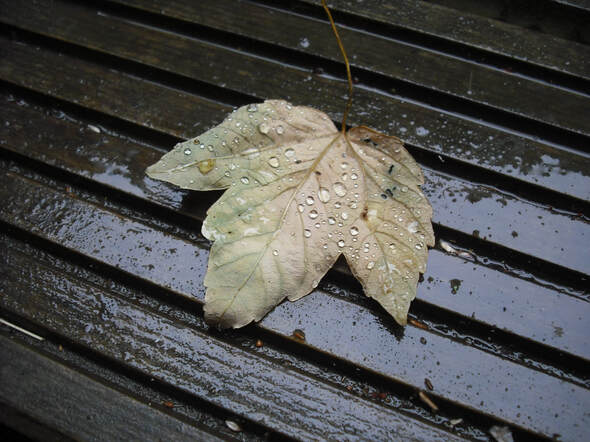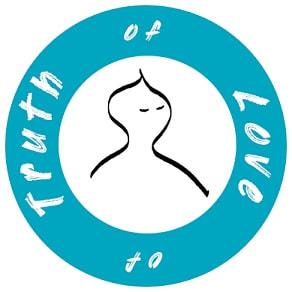|
There was an old grandmother clock in Mr. Foibles office. He had brought it to remind him of home. It was getting late in the afternoon now and Mr. Foibles was a little tired. The ticking of the clock began to call him home. There were so many memories in that ticking sound it remained in the back of his mind a bit like an inner prayer but also a reminder of time passing. When his day at the office came to its close he knew that he would bring his whole life there gently to a close some day fairly soon and that his wish was to turn to living and working in nature with his family. At home he had his study, this could be his office. This is where the revolution must begin, he thought. It was time for man to leave the cities. The cities had estranged us from our bodies and become a deluded mental realm. In the forests and the pastures we must begin again to gather and to trust our neighbour. Symbolically he took the pictures of his family from his desk and put them in his briefcase. They don't belong here, he thought. Still the clock was ticking in his mind, bringing a new rhythm and urgency to his heart. As he left the office. Mr. Baltic, the security man, nodded to him as he approached the main door. Mr. Foibles bid him farewell as usual, “Goodnight, my friend,” he said. There was no reply, as usual from Mr. Baltic. His little room was dark inside. The pictures from the security screens flashed across his face. His eyes were sad and vacant. Mr. Foibles left feeling a little melancholy wondering how ever he may reach poor Mr. Baltic. His home was a short drive away in the suburbs. When his key entered the lock of his front door he realised he had been so lost in thought he had hardly noticed the journey so much was his sense of time predominant in his mind. He felt unsettled. His wife greeted him at the door with the customary peck on the cheek and update on dinner. She returned to the kitchen and Mr. Foibles headed for his armchair. Alone in the living room his mind was flooded with the past. His attention turned to his old grandfather clock which had been in the family for generations. As usual it stood silent, its mechanism ceased up long ago. The tick-tock of his mind fell silent and his time-bound automatic mind fell silent too. Time stood still. The old and gold grandfather clock remained like an aura in his mind, catching the light this way and that, still and mellow. He cast this new light around the room, at the old family photographs, the familiar paintings on the wall, the souvenirs from many a journey. These were all the things that had made home for Mr. Foibles. He could still remember as he placed his mind on each in turn and thought about it but they no longer called to him from the walls and his home lay now in the heart. His wife served dinner. It was usual for Mr. Foibles to be quiet and pre-occupied on his return home. She knew to give him time and then gently enquire as to his day. “I love you, dear.” said Mr. Foibles. “I love you too dear,” she said and placed her hand on his. “I shall retire,” said Mr. Foibles. “Very well,” she said, thinking that he would retire to bed. Mr. Foibles did not explain his plans but returned to his armchair. His funny old head sat on his shoulders like a golden pumpkin on the shelf of his garden shed, rocking gently as life thumped by. His silence hung so softly in the air that summer evening that life simply came and went. He smoked his pipe and looked out of the window. There was a little forest behind the house. Mr. Foibles in his heart was at the cabin and his house had become a cabin too. The office, like a dream, faded in his mind. He nodded off a little and dreamt that he flew from the city with a chain of children holding his hands. He was so happy. He was home and there was a new peace in the air, as still as glass, as dusk approached. The silence was golden. His family had gathered at the end of the day. A golden sunset poured into the room like an angel. His dear wife and three children sat in their accustomed places and Mr. Foibles spoke in a way that he had never spoken before: “Please listen, my dears. I have something to say to you all. As I hope you all know I love you all very dearly, like my own life. I have realised something that I wish to share with you as best I can. For much of my life, as you know, I have lived in my thoughts and I realise now the extent to which I had become estranged from my own body. This last weekend at grandpa's cabin that changed and I discovered, in a very natural way, a truth, a love, a joy and a sense of freedom in the body I had never discovered before. At the office today I realised I had not been alone. All around the city I saw people lost in thought and unhappy. We are so lucky here that we have the forest to return to but what I realised this weekend is that the body is part of nature too. We belong there and not in the city. This realisation has changed my life. I shall retire from the office and work from home. I will be here all the more to love you and keep you safe. I will grow pumpkins and spinach and sing lullabies to the silly city. We will not be so rich but I believe we will be happy.” Thus spoke Mr. Foibles. And this was just the beginning of a new life and love for the world. For the world would come to love Mr. Foibles, in the golden silence and peace of history, just as Mr. Foibles had come to love the world. And Mr. Foibles was beginning to wonder about the future of the cities, “It’s an unnatural way to live, I get the feeling something could go terribly wrong,” he thought. THE END Video versionThe Mr. Foibles TrilogyMr. Foibles woke on Monday morning to find his life quickly rushing like blood to his head. But it was a funny new head, his whirling habits newly crowned with a mess of white hair unwashed and uncombed in the faint dawn light. Under the sway of habit his body prepared itself to stand up and go to the bathroom. He was literally getting carried away. I will get ready in my own good time, he thought. He triumphantly messed his hair up a little more. He walked his body outside. The sun was rising above the forested mountains. The air was crisp and clear. This was a brand new day in the world, never seen before. He felt so alive, so real. Breathing the cool air he felt it right down into his lungs, breathing out he returned the air to the sky. His feet, still in his tatty old woolly slippers, were as if rooted to the earth. From the crown of his head to the soles of his feet he was full of love. Turning back indoors, through a gentle application of restraint, his mind offered patience to his morning habits. He washed and modestly covered the body in the usual attire fitting to his role and purpose. The socks looked a bit pointless without his shoes, he laughed as his head hung down. Looking at his hairy old legs they appeared to be upside down as if the floor were suddenly the ceiling, he giggled. Life seemed so absurd. He stood in front of the mirror and tried to feel important about his smooth grey suit to make up for the fact that he no longer felt important in it. As his finishing touch he chose a light blue silk tie as cool and crisp as the morning light. Its sheen was a reminder of the inner light, the truth of the body that shone through, cool and bright. Both literally and metaphorically the time was now right. He left the cabin for the city. As he travelled his usual route to work he saw everything in a new light. He drove a little slower than usual to take in the scene. The car was like an extension to his body, one vehicle inside another. As he paused at the traffic lights the sun shone through the windscreen and warmed his hands that were beginning to look their age. His heart beat quickened a little and he gazed back at the sky as though waiting for heaven to come in cool blue pyjamas. The green light came, he would go on. The farmland around gave way to suburbs swarming with children on their way to school. The little ones bounced their bodies along the street like rubber balls. The teenagers found a strength that as yet tensed under the gaze of others. The adults walked responsibly. The morning world whirled on, driven by the invisible assumptions that formed the day ahead. His heart was an open question. Through the outskirts there were the highs and lows of the bridges and tunnels. Underground life was dark and driven, he thought. There was an order and cleanliness to it all that aspired to style and meaning. In awkward spaces a sculpture would be thoughtfully added to bring the scene together and make it look as though it was all meant to be just the way that it was. But today, in his playful mind, the office blocks looked like massive fridges or kitchen units making everything else look tiny, of no consequence. He was happy to be a nobody. Then another underpass and this time, without thought or judgement, his mind was calmed by the simple grey concrete and the lights reminded him of Christmas. Approaching the city centre he drove over the brow of the hill and drew breath as a brand new city was laid out before him. It looked like a toy. In the bright morning sun it looked like plastic. Holding the steering wheel he played with his new toy as if he held this precious human world right there in the dexterous warmth of his hairy old hands. He held on but not too tight and the touch of his mind was lucid and bright. Seeing fellow bodies abroad in the brilliant morning light his heart softened and he took every care. He slowed and gestured elegantly for pedestrians to pass before him. I some there was pride in their wealthy clothes and groomed hair. He gently mocked their vanity with his gestures. But these were genuinely good people. It was not just that they paid their taxes and loved their families. The children were happy for their life was full of promise, like gifts wrapped with ribbons in the sky. They held the innocence and the hope of the adults. It was true, there was hope. I wonder if the sky likes being blue, he thought. It was harder to see past the glittering act or the hard fact to the bodies that walked and talked, sold and bought, but the bodies were there as a purpose as soft as putty. As crude and rude as on the farm they were a deeper perspective entering on the scene as real as the feel of it all. Yet all the body's needs were displayed in anonymous ways and everything duly taken for granted. The shop was around the corner, the health centre was down the street and nobody needed anybody in particular. People could get the impression they were self-reliant and in control. On the smartphones and in the shop windows the halogen lights outshone the light of the spirit, god of the day and protector of the night when nature failed to shine the way. And dreams ran in the nerves and the wires the same until the sinews of man jerked and this was life in the false and their false life and death. It was life to the banks and the advertising, the insurance companies and the meaningless sport. And security lay only in facts, in numbers half remembered by a mind divorced from the body that was as tired as it was wired and somehow wired into the city. The city of a billion buttons. Hearts would howl at night, he thought, as the numbers slipped out of view, dreams of the future becoming just a dream. Tears came to his eyes. Yet the gypsy beggar by contrast was as real as his hunger. He sat in the doorway on a sheet of cardboard. Most passers-by were modest in their offerings, proper citizens knew how to deal with this situation and thought there was no need to be touched or to touch that reality. Knowing not that such a reality could remain, beyond the facts, to guard our sleep. But time would tell. He arrived a little late at the office. Miss Springles at reception was flustered and jabbering in rapid lists. He took her hand, warm and damp, squeezed it with a gentle gesture of reassurance and smiled. For a moment time stood still as their eyes met. She paused. “See, there is time,” he said. And there was time. Measured in the new posture and composure of Mr. Foibles there was a time beyond time. His eyes sat in their sockets like a child's prize marbles. Here was the insistently real in the land of numbers. His real work was done. Now, with true love, he could play with the world. He went to the toilet down the corridor. The faint smell of urine somehow tickled him. He entered an empty cubicle and locked the door. The man in the next cubicle was whistling some old song. It echoed strongly in the humid air. Mr. Foibles was trying to recognise the tune but for a moment he imagined that he was whistling through his penis. He shook uncontrollably as he tried not to laugh out load. If he could do such a thing he could be famous but how, in all decency, would he present himself, he thought? The toilet became a circus of feats and freaks and danced in his blissful mind. The light of his heart flashed free and white, mirrored in gleaming porcelain. He returned to his office, trotting under a shower of giggles. He sat at this desk and as he settled again into his chair the worry that was his office habit dragged at his heart. He felt a little heavy and his mood sank with his frail old body. His body was disappearing into the plush upholstery. He felt a little helpless. He wanted so much to share the joy and sense of freedom of the last few days but who would listen. Would people just think he was crazy? He stared at the computer on his desk. The light from the screen shone into his face. The light felt so false, like the neon lights of the subway it seemed to emerge from darkness like a lie. The darker truth of the city was beginning to sink in as he sank even further into his leather chair. He put his old hands together and prayed... Please help me Lord. Oh, how sleep has stolen the light, the sleep of thought. Yet how I am driven to that thought to deal with the desires of others. For it seems that the spirit is becoming lost to modern man. The senses it seems cannot help but believe the bright screen - brighter than the heart of modern man and as clean as heaven the bright screen sells the pleasures of the world so that lost in feeling and the hope of feeling is the spirit. And lost am I without the light of the heart in the eyes of my brothers. Please help me Lord. There on the ground shines the light of the spirit. There on the ground of the body where no man’s eyes find their rest. There where the heart is first composed. And furthermore when the heart sees the suffering of the world it can be free and yet caught in the light of the bright screen that suffering seems as dark as eternal night and as death to the life of desire. Only when what was dark becomes light does true life, the life of the spirit, truly enter the heart of man and yet it seems that even the light of being and of space will be as the light of the bright screen in the dreams of the modern man. And heaven will be but a movie in the heart of man. Before the bright screen the heavy breath churns the world around and the storm of dreams is never still, the world of the mind dances to its tune and is a slave to its tides and reality is its deadliest foe. Are the spasms of passion to be the only life they shall know? Please help me Lord. Then Mr. Foibles came to his senses. No, I shall not grieve for the world, he thought. But should I hide among the beetles and the dragonflies and appease the reflex man with little white lies? For all alone is there is only danger and would I best remain a stranger to the reflex man? There was a knock on the door he knew very well. His secretary, Mrs. Tweedsome, popped her head around the door. “Can I get you anything?” She asked. She knew him well. She had seen him many times in reflective mood and knew not to disturb. Mr. Foibles smiled and shook his head and she disappeared. He was a little relieved. It seemed she hadn't noticed anything different about him. Despite his experiences he must have seemed normal enough. She was so kind and had been so loyal to him over the years. He would take her children to the ice cream parlour around the corner next time they turned up a little early from school, he thought. He stood and gazed out of the window at the city below. The summer breeze gently caressed his wrinkly old face. No, I am not alone. We are all together, one body, one life, he thought. He remembered William Blake: “God appears and God is light to those who dwell in realms of night but does a human form display to those who dwell in realms of day.” He sat looking at the pictures of his family on his desk. We can all be happy together whatever our reason and time shall tell. Let time be the teacher. I must be patient thought Mr. Foibles. I will say nothing about my weekend unless I am asked, he thought. The sun blazed through the window of his office, he could feel its warmth on the back of his head. The light in his eyes was so bright it seemed for a moment as though it shone right through. The taste of freedom was so sweet. As a gesture and a reminder he would buy cakes for everyone in the office and offer them himself every day from now on. It was just the beginning of a new life of giving. Mr. Foibles was full of joy. With his mind clear and happy he got down to his work. He played with numbers and words with his head and his hands, abiding in his new life, inside. TO BE CONTINUED... Video versionThe Mr. Foibles TrilogyThis teaching was originally offered during the inauguration ceremony of The Hope Cathedral in Fredrikstad, Norway. I am a forest monk living a very simple meditative life in the forest in Norway. This life very much deepens my relationship to nature. In Buddhism we develop our awareness through meditation and allow nature to teach us. Many Norwegians have said to me that their time in nature is almost a spiritual experience. I don’t know what they mean with ‘almost’ – through deep contact with nature we develop spiritual qualities in the mind. Ultimately, if it goes deep enough, this can lead us to spiritual enlightenment, where our mind enters into a very stable, natural state. For this reason Buddhism is full of practices to help us connect more with nature and develop these spiritual qualities to the full. In nature, as maybe we all know, the mind can become very calm, peaceful, humble and grateful for all that nature gives us. We can naturally develop love and respect and feel inspired to help nature. We become wise too, seeing our real place and role in the world.
To me this is a spiritual way forward for mankind that also, naturally and without pressure, leads us to behave responsibly with respect to the environment. It is so natural and pleasant to go out into nature, isn’t it. We can relax and lose ourselves in the scene, feeling at one with our surroundings. This can be especially so in the mountains where we feel so small… I remember many a time sitting meditating high in the mountains, following the breath and feeling like I was breathing in all the vast space around me. Following the breath and continuing to let go into such a scene, we can lose ourselves more and more and something lovely can happen. We can disappear completely and, with no sense of self or centre to our awareness, our field of vision becomes a field of awareness. This quiet, empty awareness opens up to more fully take in the scene. We can still focus on something when needed but if we are relaxed we are still open to whatever is occurring. We can keep an eye on a rocky path we are walking while still appreciating the countryside. This is our most natural state of awareness, beginning at the outside world with our body in the background as we pay attention to our feelings or posture or how we are moving. If we remain calm and open even as we are aware of the body we can still feel at one with the scene. We can find that our sense of self still does not arise. And if we can sustain this kind of awareness and keep letting go, relaxing into it, our mind can become very peaceful, quiet and clear. Then, if we direct such peaceful awareness in the present right back at the body we may, at least momentarily, see our body as part of the scene, part of nature. This can be a very profound experience, much more so even than we may realise at the time. In this way we begin to see our body in a completely new way as if it were also something outside of ourselves, just like somebody else’s body even. Again, if we remain calm this does not feel at all strange but also very clear. We can even realise how confusing it has been to see the body in the usual way. We can realise we have been seeing our bodies or other’s bodies just as a source of feelings, not really as a body or even as a human being very much. With our new view we find ourselves unable to see other’s bodies as different from our own and we have a more natural empathy and compassion. We find ourselves tuning in fully to the natural world and find a naturally loving, very spiritual space. Perhaps all this is why so many describe having had their first spiritual awakening way up on a mountain peak. Video versionIt was summer and he was staying at his cabin for a well-deserved rest from work. It was a beautiful morning to sit on the verandah. To the south was an open view of the forested hills. To the north the verandah was enclosed by windows offering a view of the forest behind through the glass. Drinking his morning coffee and looking through the windows at the beautiful forest he felt peaceful and happy. He played around smiling at his reflection in the window. If he focussed just right his reflection looked like his spirit floating out there in the forest. For a moment he lost himself in the scene: ‘The peaceful mind is just like this window,’ he thought, ‘it is both an opening to the world and a mirror in which we see ourselves.’ Suddenly he felt as light as air. He had completely disappeared into the scene around him. Continuing to gaze at his reflection, his mind silent and open, his feelings were somehow projected onto his image as it returned his gaze. The space of his mind became very peaceful and still as his feelings naturally sought refuge in the forest’s leafy hiding places, gathering together like a flock of birds in the fading summer ready to depart. ‘Are my feelings not happy in the forest?’ he wondered. ‘ ‘Why are they still restless?’ He sat at the window the whole afternoon, enchanted. Gradually as the light changed, his reflection disappeared. The sky behind him was reflected in the window and a view of the forest appeared above him where the roof over the verandah shaded the windows. Now the forest looked like heaven and he found that he didn’t miss himself at-all. ‘The forest is ever more beautiful when the ghosts of our minds take flight,’ he thought. ‘And our empty mind is free to roam the sky of our hearts, open and bright.’ ‘Such is true love,’ he thought. Video versionIt’s never too late to be kind to the world it’s never too late to love a true love is a simple life cherishing all beings with a heart like the sky it’s never too late to love for our own sake it’s never too late for goodness sake it’s never too late even if it’s too late to save the world it’s never too late to be kind to the world it’s never too late to love and if we can let go and go with the flow we will always be able to love Video versionThis is part 5 of the "Nature Series". 1. A walk in nature 2. Finding our place in nature 3. Hello nature 4. Our goodbye nature 5. It's never too late to love the world 6. True love for the world our goodbye nature is deep inside our goodbye nature can never be tied our goodbye nature is as free as a bird our goodbye nature knows the absurd for it is our goodbye nature that says hello that lives and loves with nowhere else to go Video versionThis is part 4 of the "Nature Series". 1. A walk in nature 2. Finding our place in nature 3. Hello nature 4. Our goodbye nature 5. It's never too late to love the world 6. True love for the world When we come back home from a peaceful walk in the forest and we begin to feel stressed again we can begin to question, ‘do I really need all this stuff?’ In my family it was a tradition to get together sometimes and have a big purge of the house to get rid of anything we did not need or want anymore and create some space. The cupboards and drawers would start to overflow with stuff and we would know it was time. It was always difficult at the beginning. There would be so many memories associated with everything,
‘Aunty Dorrie gave us this’ or ‘do you remember the day...’ As the purge went on, however, we would begin to see the space and order we were creating and start to enjoy the process. There was a great relief to being free of all the clutter. If we let go of things more and more this sense of relief, of freedom can become paramount and we get bolder and bolder in what we get rid of or give away. We can start to incline towards simplicity, our living room goes Zen. We start painting everything white. We build a tree house in the garden. We delete our Facebook account. We look at the stars at night. We have space in our life. We are happy in a completely new way. This is the joy of renunciation. It goes a very, very long way… It was a fine autumn morning in September when, arising a little stiffly, I realised I needed to take my body for a walk. I calmly set off, rubbing the sleep from my eyes with a little gentle happiness, nothing special. Yet setting off through the forest with a mellow heart I found myself wishing a good morning to all the trees and other inhabitants. To my surprise that morning to calmly and sincerely say ‘hello’ to nature brought the experience alive in a brand new way - I did not just see a lot of pretty shapes and colours, acknowledging all the living beings out there in this simple way I naturally felt full of love and respect. I congratulated the trees for growing well this year and the ants for building their hill even higher. Likewise my concern for nature felt more personal, more human, coming from an immediate and realistic perspective. My love felt safe beginning at the heart and not going straight to my head. My love was constructive and open, active not passive, not full of opinions and expectations. I was not thinking that things should be this way or that and starting to worry. I was not wanting anything. I was simply ready to help. I helped a beetle across the road. I ended up taking a long walk all the way to the ocean. Paddling in the gentle breakers the water was cool. The sand moulded to my feet and I was gradually invited by the body back to the cool ground of the heart for a well-deserved rest. It had been a memorable day. And today, going about my business, I still find that I do not forget my friends in the forest and act irresponsibly. I speak up for my friends when the opportunity arises. I feel good inside where it really matters. And all this comes so naturally and simply just from remembering to say ‘hello’ to nature, straight from the heart. Video versionThis is part 3 of the "Nature Series". 1. A walk in nature 2. Finding our place in nature 3. Hello nature 4. Our goodbye nature 5. It's never too late to love the world 6. True love for the world If we sit still in the forest for long enough we naturally find our place in nature. There is no need to think. The beauty and the beast of pleasure and suffering together teach us all we need to know. And we find a balance and peace. From the beauty we see the laws of nature expressing themselves, the purity of reason reflected in the order and symmetry. We see our minds as part of a greater mind. From the beasts, from the weather and the bugs and from our own body, we learn that we are not in control. For our bodies, we know deep down, are part of nature too…. And, if we can continue to relax the body and let go, we will find the greatest of relief. We will realise how much to have tried to control had been a stress and a burden…. Going home, if we find stress calling us to again let go, we will find that if we can relax the body we can relax the mind…. And, as we relax the mind, we find that peace, order and reason return as if our heart was returning to its forest abode. Video versionThis is part 2 of the "Nature Series". 1. A walk in nature 2. Finding our place in nature 3. Hello nature 4. Our goodbye nature 5. It's never too late to love the world 6. True love for the world |
Categories
All
|
Open The Sky - Reflective and creative work by Ajahn Kalyano
